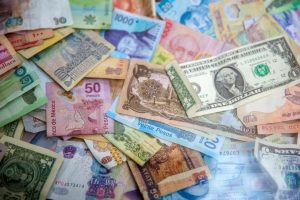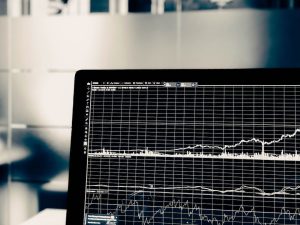The foreign exchange market, commonly known as forex or FX, is the largest financial market in the world. It involves the buying and selling of currencies from different countries, with the aim of making a profit through the fluctuations in exchange rates. One of the key features of forex is volatility, which refers to the degree of price movement in a currency pair over a specific period. When volatility increases, it can have significant impacts on traders, investors, and the market as a whole. This article will explore what happens when volatility increases in forex.
Volatility in forex is measured using various indicators, such as the average true range (ATR), the relative strength index (RSI), and the Bollinger Bands. These indicators help traders to determine the level of risk and potential reward in a particular currency pair. When volatility increases, the price movements become more erratic and unpredictable, which can create both opportunities and challenges for traders.
One of the main effects of increased volatility in forex is higher trading volumes. When prices are fluctuating rapidly, traders tend to enter and exit positions more frequently, hoping to capitalize on the movements. This can lead to higher liquidity in the market and tighter bid-ask spreads, which means traders can buy and sell currencies at more favorable rates. However, it also means that the market can be more volatile and prone to sudden shifts, which can catch traders off guard.
Another consequence of increased volatility is higher risk. Trading in a highly volatile market can be more challenging and requires a greater degree of skill and experience. Traders need to be able to manage their risk effectively, using tools such as stop-loss orders and position sizing to limit their potential losses. Higher volatility also increases the likelihood of slippage, which occurs when the price of a currency moves against a trader’s position before their order is filled. This can result in unexpected losses or missed opportunities.
Increased volatility can also affect the performance of automated trading systems. These systems use algorithms and software to make trading decisions based on predetermined rules and conditions. However, when the market becomes more volatile, these systems may struggle to keep up with the rapid price movements and may generate false signals or execute trades at unfavorable prices. Traders need to be aware of these risks and adjust their strategies accordingly.
In addition to these effects on traders, increased volatility can also have broader impacts on the forex market as a whole. When volatility rises, it can signal a change in market sentiment or a shift in economic conditions. For example, a sudden increase in volatility in a currency pair may indicate that there is significant uncertainty about the direction of interest rates or geopolitical events. This can lead to increased volatility in other markets, such as stocks and commodities, as traders adjust their portfolios accordingly.
Increased volatility can also affect central banks and policymakers. These institutions may intervene in the forex market to stabilize exchange rates or support their domestic currencies. However, when volatility is high, their actions may be less effective or may exacerbate the volatility further. For example, if a central bank announces an interest rate cut in response to increased volatility, it may signal to traders that the economic conditions are worse than previously thought, leading to further selling pressure on the currency.
In conclusion, increased volatility in forex can have significant impacts on traders, investors, and the market as a whole. While it can create opportunities for profit, it also increases risk and requires greater skill and experience to navigate successfully. Traders need to be aware of the risks and adjust their strategies accordingly, using tools such as stop-loss orders and position sizing to manage their risk effectively. Increased volatility can also signal broader changes in market sentiment and economic conditions, which can affect other markets and institutions such as central banks. Overall, volatility is a key feature of forex and requires careful attention from traders and policymakers alike.





